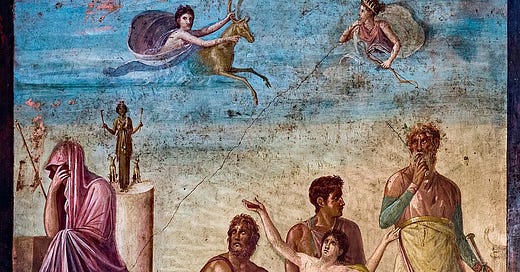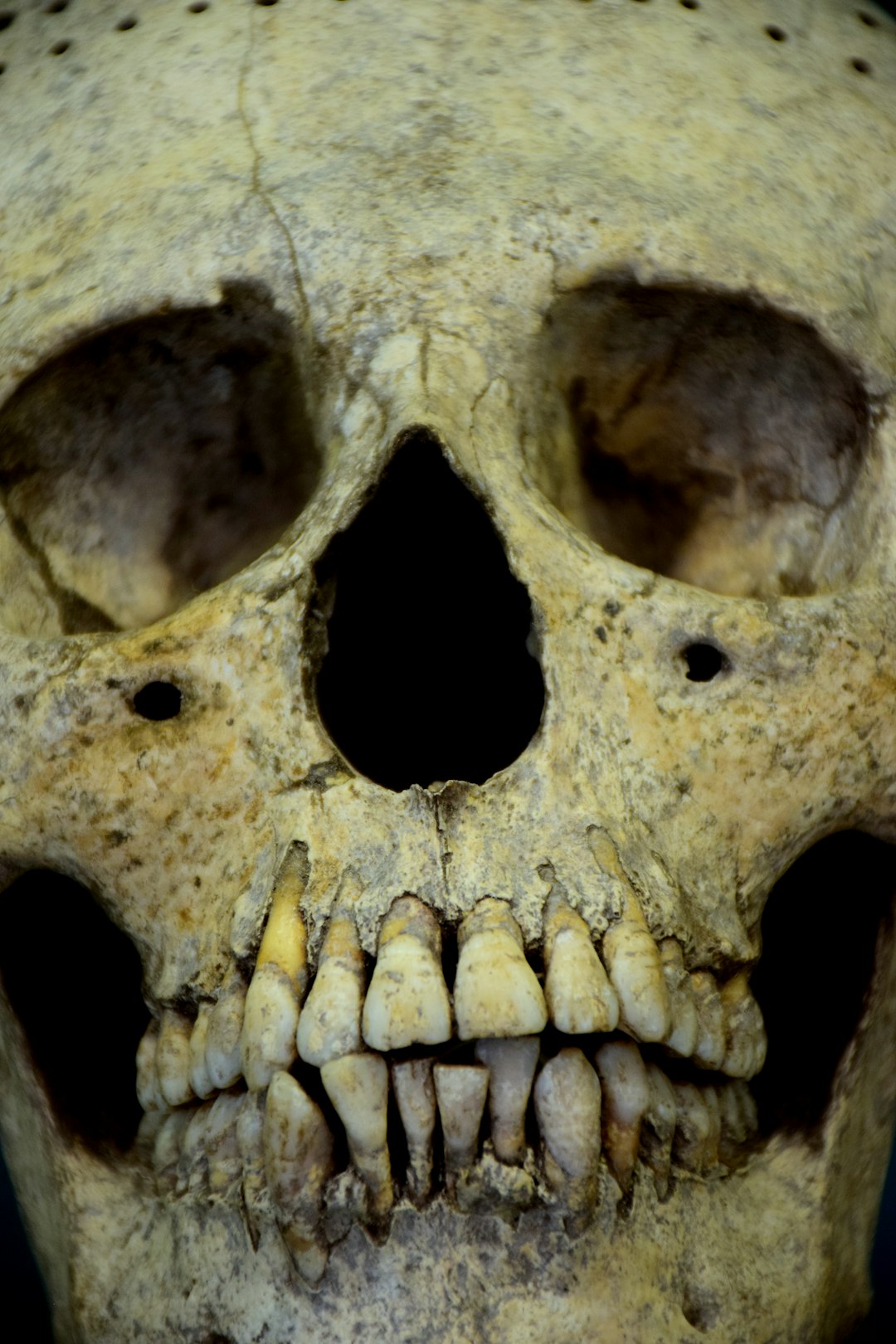Iphigenia was Agamemnon’s daughter—Agamemnon, King of Argos who lead the Greek armies to victory over the Trojans in the famous war of Homer’s epics.
You will remember that Agamemnon’s fleet was stuck in the harbor at Aulis. Finally assembled and ready to sail for Troy, they were prevented from doing so by the angry gods and a contrary wind. I’ve described elsewhere the tragedy of what happens next.
The Agamemnon Effect
The hustle gospel, commonplace in American work culture and pushed by many corporate leaders, urges us to pursue success in the workplace with a relentless, at-all-costs attitude. Long hours? Frequent trips? Distracted or non-existent family time? All necessary parts of achieving the new American dream. Most of us simply stay on the hamster wheel to ban…
In short, Agamemnon’s seers discern that the gods will allow the fleet to sail if he offers his daughter Iphigenia as a human sacrifice. In the epigram to my poem below, Euripedes has Agamemnon protesting that he will not pay this absurd price for the “worthless wife” (Helen) of his brother Menelaus. But as you may know, Agamemnon’s resolve does not survive for long, and the first murder of the war is that of his daughter Iphigenia at the hands of her father.
This poem imagines the situation from the naive perspective of the young Iphigenia who does not yet know that her life is the price required for her father’s success. Rather than naive, I should say innocent. She does not know that her father intends to kill her, but as you will see, she has made at least a couple acute observations about both her father and the gods.
If we were to put the poem in a Christmas frame, we could borrow Dickens’ from The Christmas Carol. Jacob Marley becomes a reluctant Agamemnon and Iphigenia stands in for the rest of humanity. That makes us Scrooge who is still in the mix of daily negotiations with ambition and a busy world. Which is to say: we might still have a chance.
Iphigenia AGAMEMNON: I will not slay my children, nor shall thy interests be prospered by justice in thy vengeance for a worthless wife, while I am left wasting, night and day, in sorrow for what I did to one of my own flesh and blood, contrary to all law and justice. -Euripedes (from the play Iphigenia in Aulis) The king, my father, says: “Iphigenia, come.” Weeks ago we said goodbye as he made for the ships. But the wind has blown against him. Streets by the port are filthy with soldiers and sailors killing time in bars and behind bars until it’s time to take this killing to Troy. I wonder if the walls of Troy resemble ours? If the city and women are beautiful? If Helen is happy, and will I ever see her again? But now my things are packed and with new weather we’ll make for open sea, and Helen, and Troy. But how can I be of use to father in this war I wish he didn’t have to fight? Agamemnon is a mystery to me withdrawn among his officers and staff, impatient, forceful, and majestic—and miserable in his strong way. Maybe he will find elusive happiness before those walls, and so perhaps will I, though I fear the gods reserve that prize even when they grant success.







Great piece, Patrick. "Iphigenia in Aulis" has always been one of my favorites of the Greek tragedies, but I haven't thought about it in some time.